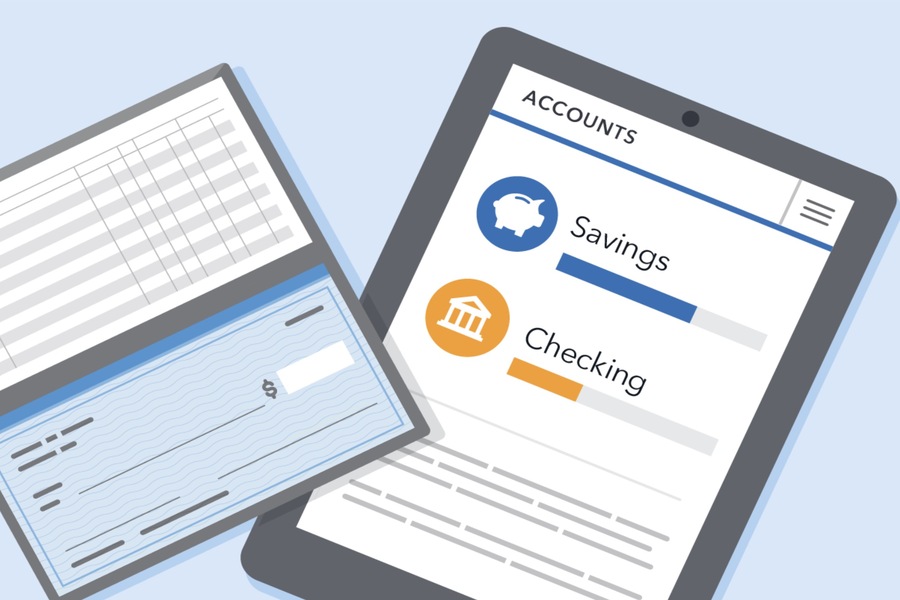In the contemporary fiscal landscape, bank accounts play a crucial role as essential instruments for the efficient management of personal finances. Whether beginning your financial journey or enhancing your banking proficiency, a thorough understanding of the various types and associated benefits of bank accounts is essential. This comprehensive guide explores the range of nuances related to bank accounts, from categorization to practical applications.
Diversification of Bank Accounts
Bank accounts come in various forms, each tailored to specific purposes aligned with different financial needs.
- Savings Accounts
Primarily designed for accumulating finances over time, savings accounts offer a secure deposit fueled by accruing interest. They serve as an ideal haven for building reserves earmarked for emergencies, specific goals, or strategic long-term financial planning.
- Checking Accounts
Used for day-to-day financial transactions, checking accounts provide easy access to liquid funds needed for daily expenses. Equipped with features like debit card access, check-writing capabilities, and online banking interfaces, these accounts are essential for managing daily financial transactions and accessing liquid funds via ATMs.
- Money Market Accounts
Money market accounts combine the benefits of savings and checking options, offering competitive interest rates higher than traditional savings accounts while accommodating limited transactional frequencies. These accounts cater well to individuals looking to maximize interest earnings without sacrificing liquidity.
- Certificates of Deposit
Certificates of Deposit represent fixed-term investments with agreed-upon returns over specified durations, ranging from short to long terms. CDs require adherence to predetermined deposit periods to avoid penalties when offering higher interest rates than savings accounts. They are ideal for those seeking predictable returns on financial reserves over defined timeframes.
Strategizing Appropriate Bank Accounts
Selecting the right bank accounts requires careful consideration of various factors to align with one’s financial goals and preferences.
- Consideration Diapason
When evaluating suitable bank accounts, factors such as annual maintenance fees, overdraft penalties, and ATM usage charges should be carefully assessed. Comparing Annual Percentage Yields (APY) for savings accounts and CDs helps maximize deposit returns. Consider required minimum balances to avoid fees or earn interest, and assess digital banking capabilities and proximity to branches and ATMs.
- Alignment with Financial Objectives
Customizing account types to match financial needs involves using savings accounts for immediate goals like emergency funds or short-term objectives, checking accounts for seamless daily financial transactions and bill payments, and considering CDs or money market options for ongoing capital accumulation with higher interest potential.

Initiation of a Bank Account
Opening a bank account involves a streamlined process based on required documentation and thoughtful consideration.
- Documents Required
Meeting document requirements involves verifying identification through documents such as passports or driver’s licenses, confirming residency through utility bills or lease agreements, and complying with Social Security number requirements where necessary.
- Initial Formalities
Choosing between online or in-person account opening methods involves efficient, secure document upload capabilities or engaging in face-to-face consultations for immediate service activation.
- Initial Financial Commitments
Determining initial deposits required to activate account functionalities depends on banking standards and desired account types.
Mastery of Bank Account Administration:
Efficient bank account management ensures seamless financial operations and maximizes associated benefits.
- Transactional Oversight
Regularly monitoring account statements and transaction logs ensures accurate financial tracking. Using alerts helps preempt low balances, excessive spending, or unusual financial activities.
- Automation of Financial Processes
Automating financial activities with direct deposit for consistent income streams and scheduling bill payments reduces late fees and optimizes financial efficiency.
- Utilization of Digital Banking Applications
Accessing real-time account balances, transaction histories, and remote check deposit features via mobile banking enhances financial management flexibility and security.
Awareness of Interest Rates and Charges
Understanding interest rate fluctuations and fees facilitates effective banking service utilization and minimizes costs.
- Interest Rate Differentiation
Distinguishing between Annual Percentage Yield (APY) for savings accounts or CDs and Annual Percentage Rate (APR) for loan products clarifies interest earnings or costs associated with credit card use or loans.
- Fee Schedule Considerations
Monitoring annual fees, overdraft charges, and out-of-network ATM fees ensures prudent account management and service affordability.
Protection and Security Measures
Securing bank accounts against unauthorized access and fraud is paramount.
- Security Safeguard Measures
Implementing strong password protections and utilizing two – factor authentication for online banking enhanced cybersecurity. Regularly updating security settings and promptly reporting phishing attempts or suspicious activities safeguards personal information .
2 . Fraud Detection and Response Protocols
Monitoring account statements for unusual transactions and promptly reporting suspicious activities to bank authorities helps mitigate financial losses. Utilizing FDIC insurance protections ensures deposits up to specified insured limits.
Advanced Banking Applications
Exploring advanced banking features and strategies optimizes financial management.
- Investment Opportunities
Using brokerage accounts for investing in stocks, bonds, or mutual funds through bank-integrated platforms supports portfolio diversification aligned with risk tolerance and financial objectives.
- Benefits and Rewards Programs
Maximizing account benefits through cash-back incentives, discounted loan rates, or free financial advisory services based on eligible transactional activity enhances financial value.

Future Trends in Banking
Anticipating fintech advancements and evolving customer preferences shapes future banking experiences.
- Digital Banking Innovations
Adopting mobile-friendly payment systems and blockchain technology enhances transaction transparency and security.
- Customer-Centric Services
Providing personalized financial insights and support based on transaction history and financial behavior through AI-driven chatbots or virtual concierge services enhances customer satisfaction.
Conclusion
Choosing the right bank accounts requires aligning with specific financial goals, evaluating account features carefully, and employing efficient financial management practices. By staying informed about critical banking trends and technological advancements, individuals can navigate towards stronger financial well-being and sustained financial success.

Я отмечен наградами писатель-фрилансер, специализирующийся на финансовых темах. Я имею в виду более чем десятилетний опыт работы, о котором упоминалось в The Wall Street Journal.
